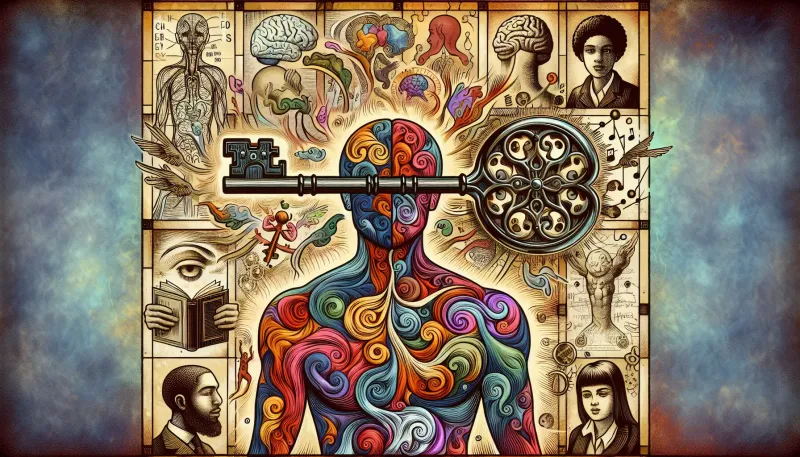Unlocking the Mind-Body Connection and Emotional Health: A Deep Dive

Explore the intricate relationship between the mind and body and how it impacts emotional health. Learn practical ways to harness this connection for improved well-being.
The mind-body connection is a complex and multifaceted relationship that significantly influences our emotional health. Understanding this connection can be a powerful tool in managing stress, improving mental well-being, and fostering a sense of overall wellness.
Understanding the Mind-Body Connection
This connection refers to the reciprocal relationship between mental and physical health. Our thoughts, emotions, and attitudes can directly affect our physical body, and vice versa.
Biological Mechanisms
One of the most researched mechanisms is the role of neurotransmitters and hormones. Stress, for instance, can trigger the release of cortisol, affecting everything from immune function to metabolism. Similarly, chronic inflammation has been linked to mental health issues such as depression and anxiety.
Psychological Impacts
Positive mental states can enhance physical health. Practices such as mindfulness and meditation have been proven to lower blood pressure, reduce pain, and improve sleep. Conversely, negative emotions can lead to physical ailments, creating a vicious cycle that exacerbates both physical and emotional health problems.
The Role of Emotional Health
Emotional health is more than the absence of mental illness. It involves the ability to manage stress, express emotions appropriately, and maintain healthy relationships.
Indicators of Emotional Health
Easily overlooked, emotional health indicators include a sense of well-being, resilience, and the ability to recover from setbacks. These indicators highlight the importance of emotional self-awareness and regulation.
Emotional Regulation Techniques
Techniques such as Cognitive Behavioral Therapy (CBT), mindfulness practices, and emotional intelligence training can significantly improve emotional health. These strategies help individuals identify negative thought patterns and replace them with healthier ones, enhancing both mental and physical well-being.
Practical Approaches to Enhance the Mind-Body Connection
Integrating practical approaches into everyday life can strengthen the mind-body connection, leading to improved emotional health.
Regular Physical Activity
Exercise releases endorphins, which are natural mood lifters. Regular physical activity has been shown to reduce symptoms of depression and anxiety.
Mindfulness and Meditation
Mindfulness and meditation practices help individuals tune into their body’s signals, promoting a more profound sense of self-awareness and emotional regulation. Studies have shown these practices can reduce stress and improve cognitive function.
Healthy Diet
A balanced diet rich in omega-3 fatty acids, antioxidants, and vitamins can support brain health and emotional well-being. For example, the Mediterranean diet has been associated with lower levels of depression.
Quality Sleep
Quality sleep is crucial for emotional regulation and overall cognitive function. Establishing a consistent sleep routine can improve both mental and physical health.
Social Connections
Strong social relationships have been linked to better emotional health and lower rates of various mental illnesses. Engaging in community and fostering relationships can provide emotional support and a sense of belonging.
Clinical Interventions
For individuals struggling with severe mental health issues, clinical interventions may be required.
Therapeutic Approaches
Psychotherapy, including approaches like CBT and Dialectical Behavioral Therapy (DBT), can help individuals understand and manage their emotions effectively.
Pharmacological Treatments
In some cases, medication may be necessary to manage symptoms of mental health disorders. These should be prescribed and monitored by healthcare professionals.
Integrated Therapies
Integrated therapies, combining conventional medical treatments with alternative approaches such as acupuncture and yoga, can provide a holistic method to enhancing emotional health.
Conclusion
The mind-body connection and emotional health are deeply intertwined. Understanding and nurturing this connection through practical approaches, healthy lifestyle choices, and when necessary, clinical interventions, can significantly improve overall well-being. By acknowledging the symbiosis between our mental and physical states, we can harness the power of this connection to lead healthier, happier lives.



























